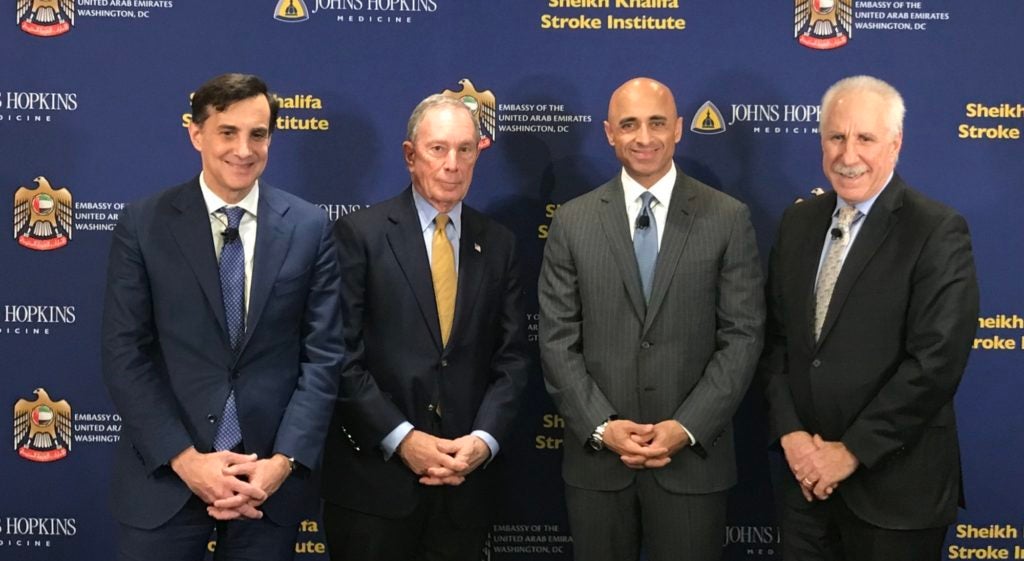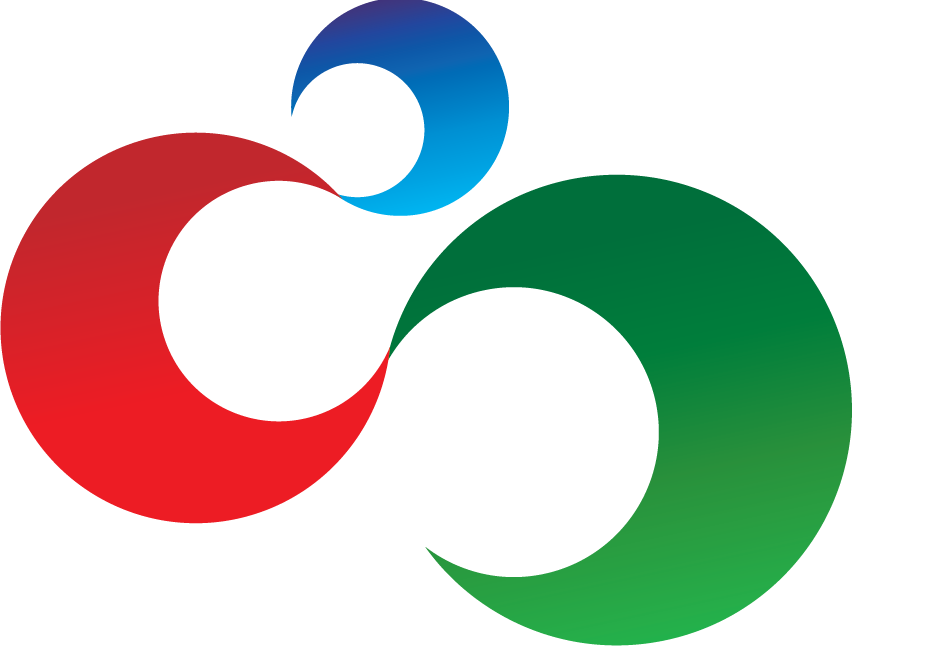The U.A.E. Embassy in Washington and Johns Hopkins Medicine announced the launch of Sheikh Khalifa Stroke Institute, funded by a $50 million gift from the U.A.E.
The Institute, with locations in Baltimore and Abu Dhabi, will further develop advances in engineering, artificial intelligence, and precision medicine to better diagnose, treat, and restore function to stroke patients. This gift is believed to be the largest ever for a stroke-specific initiative.
Johns Hopkins’ partnership with the U.A.E. spans several decades. Beginning in the 1970s, Johns Hopkins provided both specialized care to Emirati citizens as well as management and oversight of three of the U.A.E.’s major hospitals including: Tawam, Al Rahba, and Corniche.
In 2012, the Johns Hopkins Hospital and the U.A.E. dedicated the Sheikh Zayed Tower, a state-of-the-art center for adult care at Johns Hopkins made possible through a gift from President His Highness Sheikh Khalifa bin Zayed Al Nahyan.
Please view the official press release below.
To find out more about Sheikh Khalifa Stroke Institute, please click here.
From L to R: Ronald Daniels, President of Johns Hopkins University, Michael Bloomberg, CEO of Bloomberg L.P., His Excellency Yousef Al Otaiba, U.A.E. Ambassador to the U.S., and Paul Rothman, M.D., Dean of the Medical Faculty and CEO of Johns Hopkins Medicine
–$50 million gift to transform research and care of stroke globally
A new institute for stroke research and clinical care was announced today by the United Arab Emirates (UAE) Embassy in Washington, D.C., and Johns Hopkins. The Sheikh Khalifa Stroke Institute, funded by a $50 million gift from the United Arab Emirates, will focus Johns Hopkins’ efforts to leverage advances in engineering, artificial intelligence and precision medicine to better diagnose, treat and restore function to stroke patients. The gift is believed to be the largest ever for a stroke-specific initiative.
“We are grateful for the UAE’s gift, which enables us to leverage our considerable strengths in neurology, physical medicine and rehabilitation — in combination with our expertise in biomedical engineering and patient safety — to develop new tools for stroke diagnosis, treatment and recovery. These efforts will improve the health of millions of people in Baltimore, the UAE and around the world, with the added benefit of bringing down health care costs,” says Paul Rothman, M.D., dean of the medical faculty and CEO of Johns Hopkins Medicine.
The new institute in Baltimore builds upon Johns Hopkins’ leadership in the treatment of stroke and other neurological conditions. It will house two centers of excellence around which new research and patient care efforts will be designed. The center of excellence in stroke detection and diagnosis will focus on both analyzing the genetic underpinnings of stroke as well as developing new interventions that might include digital neurological exams or automated bedside diagnosis, or using imaging in new ways to better understand stroke. The center of excellence in stroke treatment, recovery and rehabilitation will focus on developing new approaches to get blood vessels to regrow, delivering drugs and medications past the blood-brain barrier, and stimulating the brain to coax it to relearn movement post-stroke.
The Sheikh Khalifa Stroke Institute, with locations in Baltimore and Abu Dhabi, signals a new direction in the understanding of stroke, and opens an era of renewed hope for patients, families and communities in the U.S. and UAE.
“This new institute will not only generate better outcomes for stroke patients in the UAE and the U.S. but will also strengthen opportunities for collaboration between UAE and US scientists and researchers. We are grateful to Johns Hopkins for their continued leadership in patient-centered medicine and are proud of our longstanding partnership,” says Yousef Al Otaiba, ambassador of the United Arab Emirates to the United States.
About one third of people who have strokes die each year, accounting for 5.5 million people worldwide, according to the World Health Organization. Of the survivors, two thirds leave the hospital with a disability, as reported by the U.K. Stroke Association.
“Standard clinical approaches to stroke do not leverage new knowledge about brain repair and neural plasticity, or learning and treatment options for stroke patients are extremely limited,” says Justin McArthur, M.B.B.S., M.P.H., professor and director of neurology and director of the new institute. “But with this support from the UAE we will be able to really bring stroke research and patient care to a new level.”
Johns Hopkins and the UAE have a longstanding partnership dating back several decades. Johns Hopkins has provided specialized care to thousands of Emiratis since the 1970s and has helped build and improve overall health care delivery in the UAE by assisting with management and oversight of three of the UAE’s major hospitals: Tawam, Al Rahba and Corniche. In 2012, The Johns Hopkins Hospital and the UAE dedicated the Sheikh Zayed Tower, a state-of-the-art center for adult care at Johns Hopkins made possible through a gift from His Highness Sheikh Khalifa bin Zayed Al Nahyan, president of the UAE.

